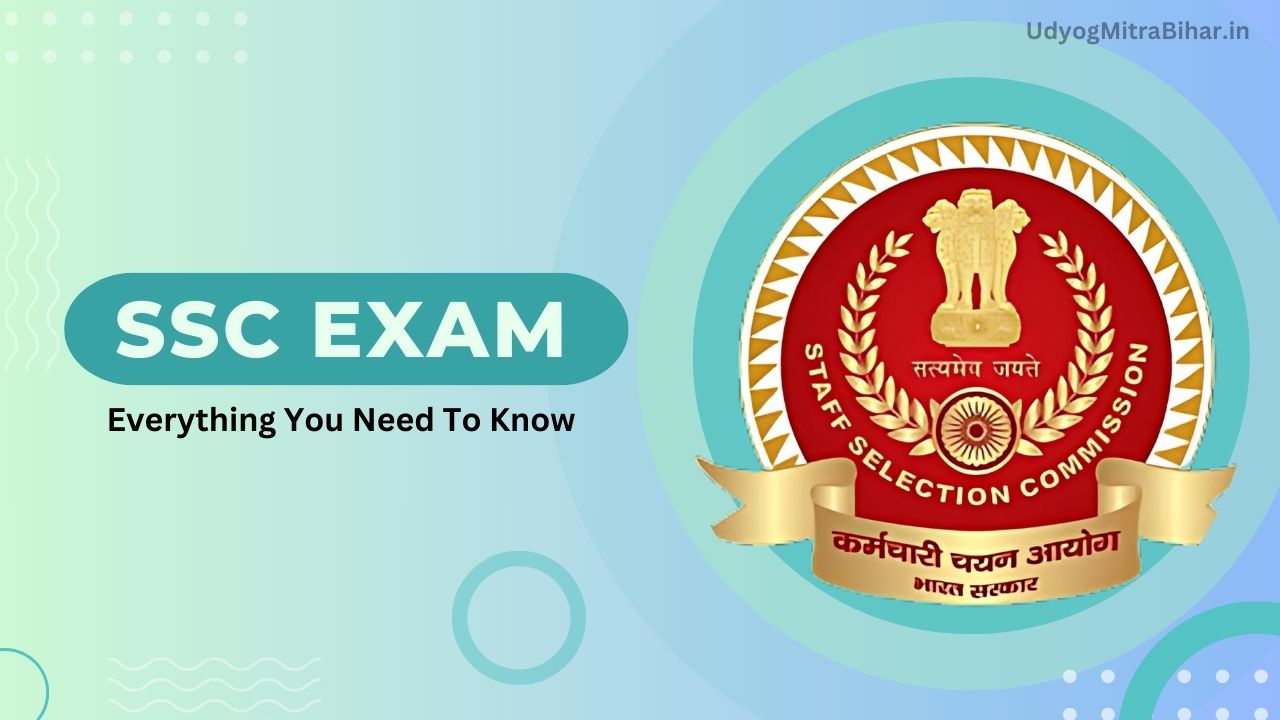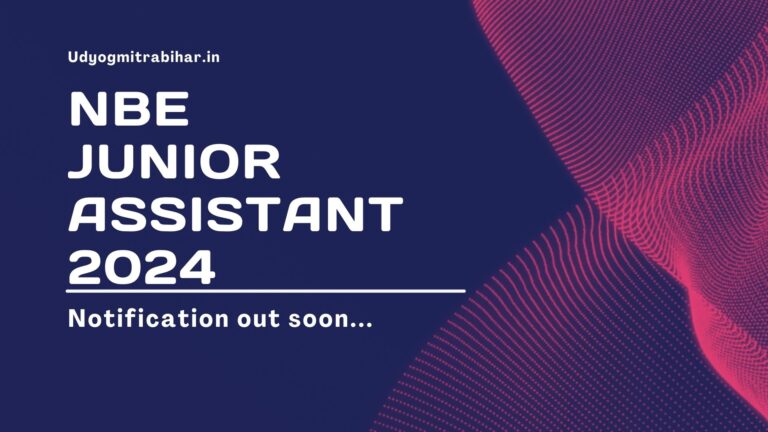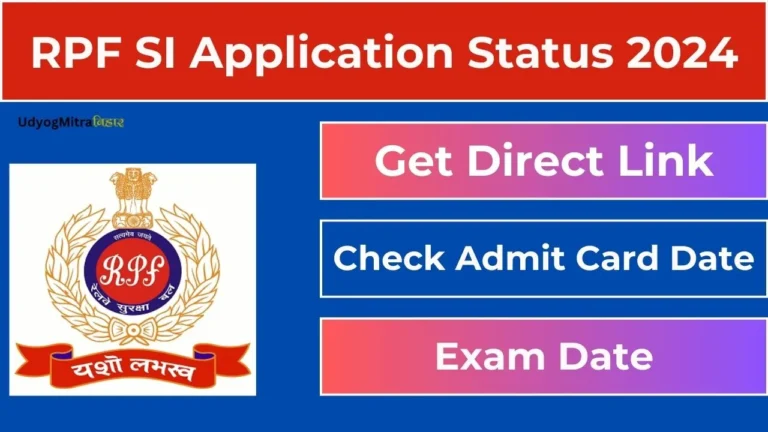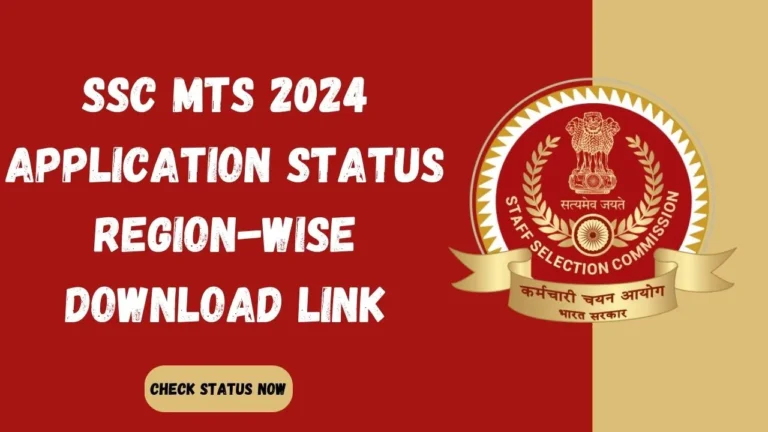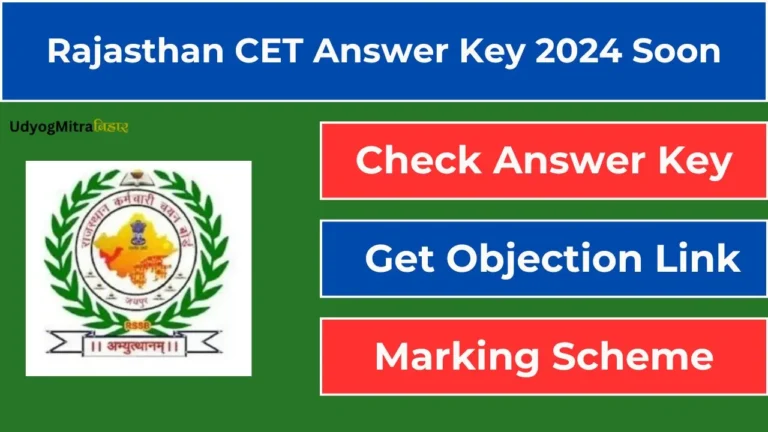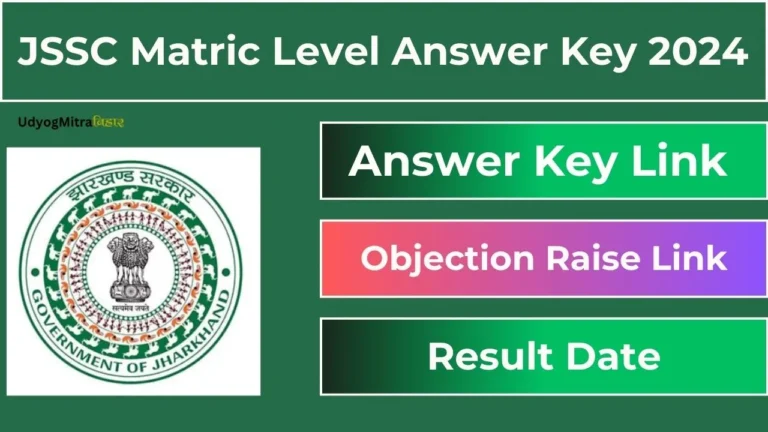The Staff Selection Commission (SSC) is a prominent gateway to secure government jobs in India. It conducts a variety of examinations to recruit staff for Group B (non-gazetted) and Group C (gazetted) positions across numerous ministries, departments, and subordinate offices under the Government of India.
These positions span diverse sectors like finance, railways, postal services, and many more. For this purpose, the Staff Selection Commission organizes SSC exams every year, including SSC Stenographer, SSC GD, SSD JHT, SSC CHSL, SSC CGL, SSC MTS, SSC JE, etc.
Contents
What is the SSC Exam?
The SSC Exam isn’t a single exam but rather a series of examinations conducted by the Staff Selection Commission (SSC) of India. These exams recruit staff for various Group B (non-gazetted) and Group C (gazetted) positions in government ministries, departments, and offices.
There are multiple SSC exams, each tailored to a specific educational background and targeted towards different levels of government positions.
List of SSC Exams
SSC conducts a wide range of exams, as summarized in the following table:
| SSC Exam Name | Educational Qualification | Minimum Exam Stages | Target Positions |
|---|---|---|---|
| Combined Graduate Level (CGL) | Graduation (Bachelor’s Degree) | Four | Assistant Section Officer (ASO), Income Tax Inspector, Sub-Inspector in Central Excise |
| Combined Higher Secondary Level (CHSL) | 10+2 (Higher Secondary) | Three | Lower Division Clerk (LDC), Data Entry Operator, Postal Assistant |
| Junior Engineer (JE) | Bachelor’s Degree in Engineering (Civil, Mechanical, or Electrical) | Two | Junior Engineer (Civil, Mechanical, or Electrical) |
| Stenographer Grade ‘C’ and ‘D’ | Graduation (for Grade C), 10+2 (for Grade D) | Two (Written Test & Skill Test) | Stenographer |
| Multi Tasking Staff (MTS) | Matriculation (10th Pass) | One (Computer Based Test) | Multi Tasking Staff |
| Selection Post (SI) | Bachelor’s Degree | Three (may include PET, ME, PBT, and Interview) | Sub-Inspector (SI) in Central Police Organizations (CPOs) and Assistant Sub-Inspectors (ASIs) in Central Armed Police Forces (CAPFs) |
Let’s discuss each of these exams in more detail –
Combined Graduate Level (CGL)
The SSC Combined Graduate Level (CGL) Examination is a multi-tiered exam conducted by the Staff Selection Commission (SSC) of India. It’s a highly sought-after exam by graduates seeking prestigious Group B and Group C positions in various government ministries, departments, and organizations.
Eligibility
Open to graduates (bachelor’s degree holders) of any stream from a recognized university. Age limits and other eligibility criteria may vary slightly each year.
Exam Pattern
The CGL Exam is conducted in three stages:
Tier-I (Computer Based Test)
This is a computer-based online exam with multiple-choice questions (MCQs) testing General Intelligence & Reasoning, General Awareness, Quantitative Aptitude, and English Comprehension. It’s a qualifying exam, and marks obtained here are not counted for the final merit list.
Here are the subjects you need to prepare for this exam –
| S.No. | Sections | No. of Questions | Total Marks | Time Allotted |
| 1 | General Intelligence and Reasoning | 25 | 50 | A cumulative time of 60 minutes |
| 2 | General Awareness | 25 | 50 | |
| 3 | Quantitative Aptitude | 25 | 50 | |
| 4 | English Comprehension | 25 | 50 | |
| Total | 100 | 200 | ||
Note: There will be a negative marking of .50 marks for each wrong answer.
Tier-II
Another computer-based online exam with MCQs. It may have sections on Statistics, Economics, and/or English Language Comprehension (depending on the post applied for). This tier carries weightage for the final merit list.
There would be up to two exams, depending on the post you applied for –
| S.No. | Papers | Time Allotted |
|---|---|---|
| 1 | Paper I: (Compulsory for all posts) | 2 hours 30 minutes |
| 2 | Paper II: Junior Statistical Officer (JSO) and Statistical Investigator Gr. II | 2 hours |
Here are the subjects you need to prepare for these exams –
| SSC CGL Tier 2 Exam Pattern [Paper 1] | |||||||
| Sessions | Sections | Modules | Subject | No. of Questions | Marks | Weightage | Duration |
| Session I | Section I | Module-I | Mathematical Abilities | 30 | 90 | 23% | 1 hour |
| Module-II | Reasoning and General Intelligence | 30 | 90 | 23% | |||
| Section II | Module-I | English Language and Comprehension | 45 | 135 | 35% | 1 hour | |
| Module-II | General Awareness | 25 | 75 | 19% | |||
| Section III | Module-I | Computer Knowledge Test | 20 | 60 | Qualifying | 15 minutes | |
| Session II | Module-II | Data Entry Speed Test | One Data Entry Task | Qualifying | 15 minutes | ||
| SSC CGL Tier 2 Exam Pattern [Paper 2] | ||||
| Papers | Sections | No. of question | Maximum Marks | Duration |
| Paper II | Statistics | 100 | 200 | 2 hours |
Note: When taking the SSC exam, incorrect answers in Sections I, II, and Module I of Section III of Paper-I will result in a deduction of 1 mark each. Paper-II follows a similar system but with a penalty of 0.50 marks for each wrong answer.
Tier-III (Skill Test/ Document Verification)
This final stage may involve a skill test (typing, computer proficiency) for specific posts and document verification to confirm your eligibility.
SSC CGL Updates:
- SSC CGL Exam Date and Exam Pattern 2024
- SSC CGL Tier 1 Result 2024: Result to be Announced
- Download SSC CGL Admit Card 2024
- SSC CGL Recruitment 2024 for Various Posts
Combined Higher Secondary Level (CHSL)
The Combined Higher Secondary Level (CHSL) Examination, conducted by the Staff Selection Commission (SSC), is your ticket to a government job in India if you have a 10+2 (Higher Secondary) qualification.
Eligibility
Open to candidates who have completed 10+2 (Higher Secondary) education from a recognized board. Age limits and other eligibility criteria may vary slightly each year, so be sure to check the official SSC website for the latest information.
Exam Pattern
The CHSL Exam consists of two tiers:
Tier-I (Computer Based Exam)
| SSC CHSL Tier 1 Exam | ||||
| Section | Subject | No of Questions | Max Marks | Exam Duration |
| 1 | General Intelligence | 25 | 50 | 60 minutes (80 Minutes for PWD candidates) |
| 2 | General Awareness | 25 | 50 | |
| 3 | Quantitative Aptitude (Basic Arithmetic Skill) | 25 | 50 | |
| 4 | English Language (Basic Knowledge) | 25 | 50 | |
| Total | 100 | 200 | ||
Note: There would be a negative marking of 0.50 marks for each incorrect answer.
Tier-II
| SSC CHSL Tier 2 Exam Pattern 2024 | ||||||
| Session | Section | Modules | Subject | No. of Questions | Marks | Time |
| Session-I (2 hours and 15 minutes) | Section 1 | Module-1 | Mathematical Abilities | 30 | 60*3 = 180 | 1 hour |
| Module-2 | Reasoning and General Intelligence | 30 | ||||
| Section 2 | Module-1 | English Language and Comprehension | 40 | 60*3 = 180 | 1 hour | |
| Module-2 | General Awareness | 20 | ||||
| Section 3 | Module-1 | Computer Knowledge Module | 15 | 15*3 = 45 | 15 minutes | |
| Session-II | Section 3 | Module-2 | Skill Test/ Typing Test Module- Part A- Skill Test for DEOs in Department/ MinistryPart B: Skill Test for DEOs except in Department/ MinistryPart C: Typing Test for LDC/ JSA | — | — | 15 minutes15 minutes10 minutes |
Note: There will be a Session I negative marking of 1 mark for each wrong answer in Section 1, Section 2, and Module I of Section 3.
SSC Junior Engineer (JE)
The SSC Junior Engineer (JE) Examination is a gateway for engineering graduates to secure coveted technical positions within the Indian government. Conducted by the Staff Selection Commission (SSC), this exam caters specifically to engineers in three main disciplines: Civil, Mechanical, and Electrical.
Eligibility
You must possess a valid bachelor’s degree in Engineering (Civil, Mechanical, or Electrical) from a recognized university.
The SSC JE Exam is a two-tiered process:
Tier-I (Computer-Based Test)
This online exam consists of multiple-choice questions (MCQs) testing your knowledge in various engineering disciplines relevant to your chosen field (Civil, Mechanical, or Electrical). It may also include sections on General Intelligence & Reasoning, General Awareness, and Basic English Comprehension. This tier is qualifying, and marks obtained here are not considered for the final merit list.
| Subject | Number of Questions | Maximum Marks | Duration & Timings |
| General Awareness | 50 | 50 | 2 Hours |
| General Intelligence and Reasoning | 50 | 50 | |
| Part A- General Engineering (Civil & Structural) or Part B- General Engineering (Electrical) or Part C- General Engineering (Mechanical) or | 100 | 100 | |
| Total | 200 | 200 |
There will be a negative marking of 0.25 marks (revised) for each wrong answer in Paper-I.
Tier-II (Technical Paper)
If you qualify for Tier-I, you’ll proceed to this pen-and-paper exam that focuses heavily on the technical aspects of your engineering discipline. The specific syllabus will vary depending on your chosen field (Civil, Mechanical, or Electrical).
| Subjects | No. of Questions | Maximum Marks | Duration & Timings |
| Part A- General Engineering(Civil & Structural) OR Part B- General Engineering (Electrical) OR Part C- General Engineering (Mechanical) | 100 | 300 | 2 Hours |
Stenographer Grade ‘C’ and ‘D’
The Staff Selection Commission (SSC) conducts the Stenographer Grade ‘C’ and ‘D’ Examination to recruit stenographers for various government offices across India. This exam caters to candidates with strong stenography skills, allowing them to build a stable career in the government sector.
Eligibility
- Educational Qualification: You’ll need a minimum educational qualification depending on the grade you’re applying for:
- Stenographer Grade ‘C’: Graduation (Bachelor’s Degree) in any stream from a recognized university.
- Stenographer Grade ‘D’: 10+2 (Higher Secondary) education from a recognized board.
- Stenography Skills: This is the most crucial aspect. You must possess a minimum shorthand speed of:
- Stenographer Grade ‘C’: 100 words per minute (wpm) in English or Hindi (as opted by you).
- Stenographer Grade ‘D’: 80 words per minute (wpm) in English or Hindi (as opted by you).
Exam Pattern
The Staff Selection Commission (SSC) conducts the Stenographer exam in two stages as part of the SSC Stenographer Selection Process:
- Written Test: This online exam consists of multiple-choice questions (MCQs) testing your knowledge in:
- General Intelligence & Reasoning
- General Awareness
- English Language & Comprehension
- Skill Test: This is the heart of the exam. You’ll be given a dictation passage for 10 minutes in English or Hindi (based on your choice during application) at the designated speed (100 wpm for Grade C, 80 wpm for Grade D). You’ll then be required to transcribe the passage accurately within the stipulated time.
SSC MTS
The Staff Selection Commission (SSC) conducts the Multi Tasking Staff (MTS) Examination to recruit staff for various Group C posts across numerous Indian government ministries, departments, and offices. This exam is a popular option for candidates seeking a stable government job without requiring a higher educational qualification.
Eligibility
- Educational Qualification: You’ll need a minimum qualification of Matriculation (10th pass) from a recognized board.
Exam Pattern
The SSC MTS Exam is a single-tier, computer-based online exam:
- Computer Based Test (CBT): This online exam consists of multiple-choice questions (MCQs) testing your knowledge in:
- General Intelligence & Reasoning
- General Awareness
- Numerical Ability
- Basic Computer Knowledge
Selection Post (SI)
The SSC Sub-Inspector (SI) Examination, also known as the Selection Post (SI) Examination, is conducted by the Staff Selection Commission (SSC) to recruit candidates for prestigious Group B posts as Sub-Inspectors (SI) in Central Police Organizations (CPOs) and Assistant Sub-Inspectors (ASIs) in Central Armed Police Forces (CAPFs).
Eligibility
- Educational Qualification: A Bachelor’s degree from a recognized university is mandatory.
- Physical Requirements: Candidates must meet specific physical standards like height, weight, chest expansion, and eyesight.
- Age Limits: Age limits vary based on category (General, OBC, SC, ST, EWS) and can change slightly each year.
Exam Pattern
The SSC SI Exam is a multi-tier process, typically consisting of three stages:
- Stage-I: Computer Based Test (CBT): This online exam tests your knowledge in:
- General Intelligence & Reasoning
- General Awareness
- Quantitative Aptitude
- English Language Comprehension
- Stage-II: Depending on the post you applied for, you may have a:
- Physical Efficiency Test (PET): This stage assesses your physical fitness through activities like running, long jump, high jump, and shot put.
- Medical Examination (ME): A thorough medical examination is conducted to ensure your physical fitness for the demanding job profile.
- Stage-III (For Specific Posts): Certain SI posts might require a:
- Paper-Based Test (PBT): This written exam focuses on specific knowledge relevant to the chosen CPO/CAPF.
- Personality Test/Interview: This stage evaluates your personality, communication skills, leadership potential, and suitability for the role.
FAQs
How many SSC Exams are there?
The SSC conducts a wide range of exams, with some of the most popular ones being Combined Graduate Level (CGL), Combined Higher Secondary Level (CHSL), Junior Engineer (JE), Stenographer, Multi Tasking Staff (MTS), and Selection Post (SI).
How can I find out my exam center and roll number?
The SSC will release an admit card containing your exam center, roll number, and other important details a few weeks before the exam. You can download the admit card from the SSC website using your login credentials.
How are the SSC Exam results declared?
The SSC declares the results for each exam online on its website. You can access your results using your roll number and registration details.
Can I apply for multiple SSC Exams in the same year?
Yes, you can apply for multiple SSC Exams in the same year, provided the exam dates don’t clash. However, you can only appear for one exam on a particular date.

